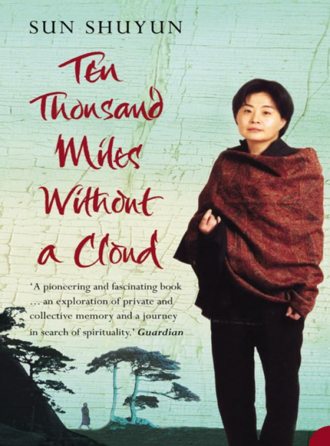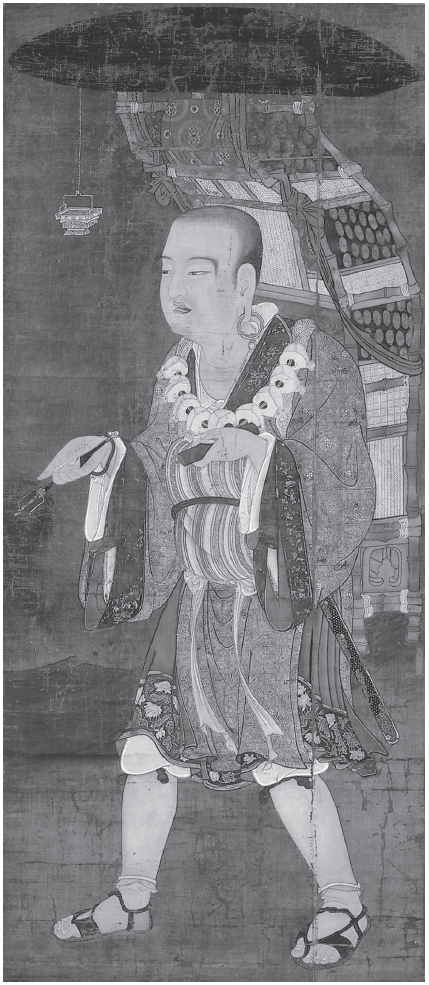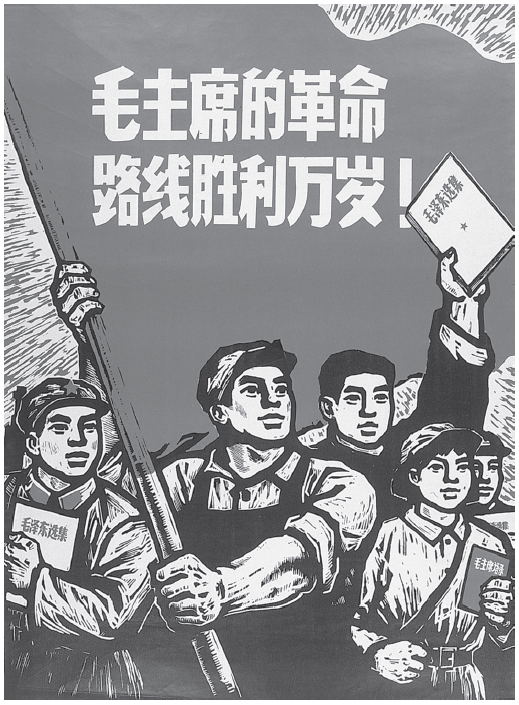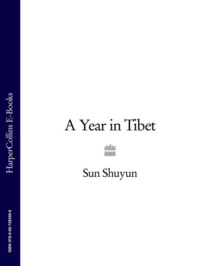
Полная версия
Ten Thousand Miles Without a Cloud

SUN SHUYUN
Ten Thousand Miles Without a Cloud


COPYRIGHT
HarperCollinsPublishers 1 London Bridge Street London SE1 9GF
www.harpercollins.co.uk
Published by HarperCollinsPublishers 2003
Copyright © Sun Shuyun 2003
All rights reserved under International and Pan-American Copyright Conventions. By payment of the required fees, you have been granted the nonexclusive, nontransferable right to access and read the text of this ebook on screen. No part of this text may be reproduced, transmitted, downloaded, decompiled, reverse engineered, or stored in or introduced into any information storage and retrieval system, in any form or by any means, whether electronic or mechanical, now known or hereinafter invented, without the express written permission of HarperCollins e-books.
Source ISBN: 9780007129744
Ebook Edition © SEPTEMBER 2012 ISBN 9780007380923
Version: 2016-03-17
Sun Shuyun asserts the moral right to be identified as the author of this work
A catalogue record for this book is available from the British Library
Map by John Gilkes
HarperCollinsPublishers has made every reasonable effort to ensure that any picture content and written content in this ebook has been included or removed in accordance with the contractual and technological constraints in operation at the time of publication.
DEDICATION
For Robert, and my Chinese family
CONTENTS
COVER
TITLE PAGE
COPYRIGHT
DEDICATION
MAP
PREFACE
ONE: Bringing Back the Truth
TWO: Three Monks at the Big Wild Goose Pagoda
THREE: Fiction and Reality
FOUR: Exile and Exotica
FIVE: Land of Heavenly Mountains
SIX: Imagining the Buddha
SEVEN: Light from the Moon
EIGHT: Not a Man?
NINE: Nirvana
TEN: Battleground of the Faiths
ELEVEN: Lost Treasures, Lost Souls
TWELVE: Journey’s End
KEEP READING
SELECTED READINGS
INDEX
AUTHOR’S NOTE
ABOUT THE PUBLISHER
MAP

PREFACE
Xuanzang, the subject of this book, could not have completed his epic journey without the help he received from kings, emperors and princes. I too have to thank a large number of people who made my journey possible; they helped me practically and intellectually. They include R. C. Agrawal, Daub Ali, Swati Barathe, Vasanta Bharucha, Bodhisen, Peter Coleridge, Joe Cribb, Mick Csaky, G. P. Deshpande, Toby Eady, Elizabeth Errington, Katie Espiner, Anthony Fitzherbert, Madhu Ghose, Richard Gombrich, Ruchira Gupta, Sue Hamilton, Hu Ji, Prem Jha, M. C. Joshi, Shah Nazar Khan, Robert Knox, Luo Feng, Philip Lutgendorf, Ma Shichang, Manidhamma, Robert Mason, Jean McNeil, Venerable Miaohua, Yumiko and Paul Mitchell, Vivek Nanda, Lolita Nehru, John Pell, M. C. Ranganathan, Harapasad Ray, Gowher Rizvi, Virginia Shapiro, Sarah Shaw, Romila Thapar, Judy and John Thompson, Uma Waide, Wang Qihan, Roderick Whitfield, Sally Wriggins, Zhang Jianhua, and many other friends and experts in China and elsewhere too numerous to list. I must single out Sally Wriggins, whose academic study of Xuanzang has been invaluable.
I owe an especially large debt to five people:
to Susan Watt, my editor at HarperCollins, who saw I had a book to write before I did, who had confidence in me before I acquired it myself and who led me through the new experience of writing with insight and assurance;
to Fang Xichen, who has been nothing less than an inspiration on the history and culture of my own people, a man of real wisdom and generosity;
to Venerable Dr Jingyin, who has been my guide and teacher in the vast canon of Buddhist writings, and who, with immense kindness, has shared with me his broad understanding of his faith;
to Tapan Raychaudhuri, whom I have troubled again and again, yet have always been received with warmth. He has put at my disposal his great knowledge of Indian history, not to speak of his expertise in Pali, Sanskrit, Indian literature and much else besides;
and above all to my husband, who kept encouraging me to write the book in the first place, who tolerated with the mildest of complaints my long absences abroad and who remained calm, patient and supportive throughout. Of all the people I know he comes closest to having the qualities of a Buddhist.
SUN SHUYUN
ONE

Bringing Back the Truth

I GREW UP in a small city in central China, in a time that now seems remote and strange. It was the 1960s. Life went by like scenes in a play I could not understand.
At first it was much the same every day, just Mother, Father, Grandmother and my two older sisters in our house in a military compound; nobody smiled much, never any treats. Things only livened up for the few days of the Chinese New Year. We ate sweets, and dumplings with meat in them; we had new clothes and a few pennies of pocket money; we bought firecrackers, watched puppet shows, put bright red posters on the front door and beautiful paper cut-outs in the windows.
Suddenly everything changed, and the streets were alive, as if every day was the New Year. There were posters, red, green, pink and yellow, waving in the wind, or blown along the road; flags flew on top of houses and workplaces; walls were painted with portraits of Mao. Loudspeakers blared out revolutionary songs from morning till night. Young men and women from Mao’s propaganda teams recited from his Little Red Book, twirled about in ‘loyalty dances’, and struck revolutionary poses – they never seemed to tire, but sometimes they fainted and had to be carried away. Some of them even pinned Mao’s portrait on their chests, and their blood dripped down. The Cultural Revolution was on the way.
Often the whole city turned out in force. People walked in ranks, some holding little paper flags, others carrying huge banners, everyone shouting slogans, young girls and women jumping up and down to the sound of cymbals and drums, with firecrackers sounding off. It was like the pageant shows during the New Year, with farmers walking on stilts, acting pantomime lions and donkeys, and dressing up as popular characters from folklore. When I asked my parents why they were marching today, the answer was nearly always the same. There was a new dictum from Mao! People stopped whatever they were doing and took to the streets, pledging their loyalty.
Another popular event was the frequent parading in the streets of what we called the ‘enemies’ of the people. They all wore dunces’ caps, and had huge placards hanging from their necks, the black characters of their names cancelled by big red crosses. There were landlords in their silk jackets, and their wives with painted faces and heads half-shaved; teachers had their shirts splashed with ink, black, blue and red; some women carried their shoes round their necks – these were bad women who had cheated their husbands; old monks with grey hair and beards wore their long robes torn and smeared with cow-dung. They were all like circus clowns with their make-up; I ran after them, shouting and laughing.
When they came to a big space, they would stop for struggle meetings, like public entertainments, drawing huge crowds. One day I dragged my grandmother along to watch. The ‘cow demons’ and ‘snake spirits’, as they were called, walked slowly round in a circle; they were reviled and spat on and a Red Guard whipped them with a belt. Some of the dunces’ caps fell off. The wires of their heavy placards cut into their flesh. The loudspeakers on the truck shouted: ‘Down with the reactionaries! Let them taste the strength of the proletarian dictatorship! And let them be trampled on for eternity!’ We were informed they were the agents of feudalism, capitalism, American imperialism and Soviet revisionism, who dreamed of toppling the dictatorship of the proletariat. So everyone must be on guard and think of class struggle hourly, daily, weekly, monthly – never forget it! I was hopping up and down, trying to get a better view. Grandmother was leaning on an electricity pole, her face white as ashes. She turned to me, looked me in the eye and said I would go to hell if I ever treated people like that. ‘Don’t frighten me. There is no hell,’ I answered back. When it was getting dark, the Red Guards marched off, the ‘enemies’ gathered up their caps and placards, and with their heads lowered, walked slowly back home. Tomorrow they might be paraded again.
I remember asking Grandmother, how could those people possibly topple the government? I did not understand. The old, bald priests in their long dirty robes looked so frail, as if they could collapse any minute under their heavy placards. My grandmother said they were the gentlest of men – they walked very carefully so they would not tread on ants; and in the old days, when they lit a lamp, they would cover it with a screen so that moths could not fly into it. But my father said I should not be fooled by appearances. ‘Even a dying cobra can bite,’ he warned me.
It was a fun time for kids. Schools were often closed, and all the children from the compound I lived in played together; we made up a unit of our own and my older sisters joined in. We wore mini-versions of military tunics – Mother sewed them from an old uniform of Father’s, and put a belt round the waist. She said, ‘If they ask you, just say your father is in the army and you will be safe; nobody will dare to touch you.’
My sisters did not study much when they did go to school. Reading and writing, addition, subtraction – there was not too much of these. Books were burnt, school libraries set on fire. Students who rebelled against their teachers were good, they were role models. Handing in a blank exam paper was heroic. The teachers’ job was to groom the successors of Communism. If they did not, they were sent away to be ‘reeducated’. They had to instil the right ideas from day one. Better socialist weeds than capitalist seeds, illiterate rebels rather than educated pupils bent on scholastic achievement. What was the point of a brilliant mind that could not tell grass from wheat?
It was the same when I started school. We did not have many normal lessons; instead we learned from peasants and workers. ‘Eat with them, sleep with them, work with them.’ We served apprenticeships in factories, making simple tools, such as hammers and chisels – half the things we made were useless, but it did not matter. We were learning the right attitude. We went to the countryside at harvest-time, helping the farmers to bring in the wheat. At least we thought we were helping: in fact, we were in the way and the farmers worried they would be in trouble if we cut ourselves on their sickles; they had to feed us; and when they were worn out at night, they had to stay up lecturing us about the bitter past and the sweet life that the revolution had brought. We did reward them: every day we went out after lunch to collect animal droppings for them, and we took night-soil from the school cesspit to their fields. That taught us something.
Then life on the streets became fiercer. The Cultural Revolution had taken on a more sinister twist. It was ‘Smash the Old’ time. The Red Guards were in full spate, storming temples, demolishing pagodas, removing traces of capitalism – old shop signs, neon lights on top of department stores, even the rotating lights outside barber shops. They took down the old street signs, which normally had auspicious names in one form or another, and replaced them with ‘struggle’ themes. They patrolled the roads and stopped anyone with curly hair, high heels or tight trousers – they shaved their heads, broke the heels and cut the trousers open. There was a small temple near home: it was very familiar – Grandmother used to take me there. I liked it; at festival times there were paper lanterns and paper animals to entertain us. Now the temple was broken up and sealed off. Then the Red Guards began ransacking people’s homes, throwing out posters, record players, clocks, antique furniture, any books that were not by Mao or Marx and Lenin – everything was piled in the streets and sent up in flames.
In one of the piles Grandmother found something special for me. I was thrilled – it was a comic-strip version of a novel, The Monkey King. The front cover was gone and some pages were missing.
The Monkey King tells the epic story of a monkey, a pig and a novice accompanying a monk to India to seek sutras, sacred writings. The monk is utterly useless. He is kind and pious, but weak, bumbling and, as the Chinese say, with a mind as narrow as a chicken’s intestine. He cannot tell right from wrong. But it is reputed that eating his flesh will guarantee immortality, so demons and vampires are all out to get him. He is in luck though: soon after he sets off, he runs into the monkey, sent to help him by the Goddess of Compassion. Without the monkey, he would not stand a chance of saving his skin, let alone getting his job done. The monkey looks like any other, but he is far from ordinary. His eyes are the sun and the moon. He appeases his hunger with iron-pills and slakes his thirst with copper-juice. In one somersault he covers 180,000 leagues. Reciting a spell, he can turn himself into anything he desires: a cloud shrouding everything in darkness, an insect hidden in a peach, a giant so big that even hurricanes cannot blow him away. No weapon can harm him, and a contingent of 100,000 heavenly troops fails to catch him. Even alchemical fire cannot burn him. He is inviolable and he gives himself a fitting title – ‘The Great Sage, Equal to Heaven’. He is submissive only to the Buddha and the monk – whenever the monk recites a spell from a sutra, the monkey curls up and cries with unbearable pain. After eighty-one titanic battles the monkey finally finds the sutras and brings them back with the monk on a magic wind. The monk, the monkey, the pig and the novice all became Buddhas.
I showed the book to my father when he came back from work. ‘It is a good book,’ he said. ‘Chairman Mao loves it. He even wrote a poem about it: “The monk is confused but can be reformed; the vampire is vicious and must be killed. The golden monkey strikes with his cudgel, and Heaven is cleared of all evil. Welcome, welcome, Monkey King, for the battle against new demons.” ’
‘What are the sutras? Why did the monkey go all that way to get them? Are they like Chairman Mao’s Little Red Book?’ I asked. I had heard adults use the word ‘sutra’ to describe the latest instruction from Chairman Mao.
‘Sutras are the words of the Buddha,’ my father told me.
‘Who is the Buddha? Is he like Chairman Mao, very important?’
Father was suddenly very irritated. ‘These are not things for children. You cannot understand them. And you mustn’t talk about them outside this house.’
Many Red Guards took Mao’s poem as their cue and called their factions ‘The Magic Cudgel’ or ‘The Golden Monkey’. Little did I know that they created more havoc and unleashed more terror than the monkey could have done.
As it went on, the Cultural Revolution became ever more extreme. There was no more singing and dancing, no parading. It progressed to blows, bloody noses and bruised eyes; from debates to vituperation and violence. I often ran home, scared. Then barricades began to appear in the streets, and rifles and cannons. I was no longer allowed out of the house, which was almost like a fortress, with sandbags at the door and all the windows boarded up. Only my father could sneak off in his officer’s uniform and buy groceries. At night we huddled together in the dark, listening to the gunshots snapping like fireworks. Grandmother was confused. ‘Are the Japanese invading us again?’ she asked my father. ‘Why are people killing each other?’ He did not answer. It was no circus any more.
I retreated to my book. I still remember reading The Monkey King for the first time. It was sheer magic: every step of the way was an adventure, replete with hordes of gods and goddesses, fairies and spirits, humans and demons. I felt transported to another world where nothing was impossible.
But I felt irritated too. I could not see why the monkey wanted to protect a hopeless, feeble monk. He had to go through ‘mountains of knives and seas of flame’ to find the sutras. What were they for? Why did he not just forget about them? Besides, how could the powerless monk have control over the almighty monkey simply by reciting a spell? Who was the Buddha anyway?
In the evening, I raised these questions with Grandmother. She hesitated, but I insisted. She asked me to close the door. ‘Sutras are very important. That’s why the monk risked his life getting them.’
‘But the monkey found them for him, really,’ I protested.
‘That is the story. In real life, the monk went on his own,’ Grandmother said quietly.
‘How do you know so much?’ I asked Grandmother.
‘Oh, a monk in our temple in the village was a great fan of Master Xuanzang. He told us a lot about him.’
‘It isn’t possible. Devils were waiting for him every step of the way. He would have been dead a hundred times over. He was so useless.’
While Grandmother was explaining to me what the monk really did, I felt my eyes were closing. I slept, and dreamed I was very thirsty, as if I were struggling in the desert and could not find the way. For a long time afterwards, I saw the monkey and the monk in my dreams.
They remained vividly in my memory. But it was no more than that until many years later, when I met an Indian history student in my college’s common room in Oxford.
‘I know about someone from China.’
‘You have friends there?’
‘No.’
‘Do you mean Mao?’
He shook his head. There was a look of disappointment on his face, as if it was obvious and I ought to know. He straightened up, and put down his drink. ‘It is Xuanzang. You must know about him.’
‘Of course, he is the monk in The Monkey King. It’s one of the most popular Chinese novels,’ I explained.
‘He is India’s great friend. We love him. He was an extraordinary man. He preserved a large part of our history for us.’
I must have looked surprised, and I felt embarrassed. ‘I know who you mean,’ I said.
But I was puzzled. Could this be the same Xuanzang? I dimly remembered from school that Xuanzang had written about his journey, but we were never taught about him, nor did we read his book, The Record of the Western Regions. The next day I went to the Bodleian Library to see if I could find it. It was there, of course, and also The Life of Xuanzang, the biography written by his disciple, Hui Li, both in English. I sat down at once in the Upper Reading Room and began to read.
I became completely absorbed. For the next three days I hardly did anything else. I felt I was on a treasure hunt, each page its own reward, but giving me a clue to the next discovery. I could not believe the wealth of information contained in the two books. The sheer number of cities and towns he visited, the history and legends associated with each place, the kings who ruled with righteousness, the Buddhist masters and their luminous wisdom – his Record is an encyclopaedia of the history and culture of the time; it is the testimony to a lost world. I wondered how much of it remained to be rediscovered.
The Record gives you no impression of Xuanzang himself nor of his adventures on the journey; those you find in the biography. It was a total revelation. Xuanzang was lost in the desert for four days without water. He was robbed many times – once pirates even threatened to throw him into the river as a sacrifice to the river goddess. He was almost killed by an avalanche in the Heavenly Mountains. At one point he even had to go on hunger strike to be allowed to continue his journey. The monk whose biography I was reading bore no relation to the one I had known from childhood. In fact, he was the very opposite of the helpless man in The Monkey King. He embodied determination, perseverance and wisdom. They were both monks, and both went to India in search of sutras – but there the resemblance ended.
Grandmother was right after all. There was a real Xuanzang. He was born into a scholarly Confucian family in 600 AD, in Henan Province, the cradle of Chinese civilization. He was the youngest of four sons and lost his parents when he was an infant. A serious child, he did not want to play with other children; even at festival times he stayed in and read. He soon became fascinated by monastic life – one of his brothers was initiated as a monk early in his life, and Xuanzang often went to stay with him in his monastery.
When he was thirteen years old, an imperial decree announced that fourteen monks were to be trained and supported by the state at his brother’s monastery. Several hundred candidates applied. Xuanzang was too young to qualify but he had set his mind on it. He lingered round the examination hall all day until the imperial invigilator noticed him and called him in. When asked why he was so keen on becoming a monk, he replied: ‘I wish to continue the task of the Buddha and glorify the teachings he bequeathed.’ The invigilator was surprised by this answer from a young boy who seemed to know his mind so well. He made an exception for him.
Xuanzang took to monastic life like a fish to water. He studied day and night, with little sleep or food. After hearing a sutra only twice, he could remember every word. But his studies were soon interrupted by a major peasant uprising. ‘The capital has become a nest of bandits,’ as he later told Hui Li. ‘Law and order has broken down completely. The magistrates have been killed and the priests have perished or taken flight. The streets are filled with bleached bones and the rubble of burned buildings.’
He and his brother fled first to the capital, Chang’an, today’s Xian, but there were few monks there: most had gone to Sichuan in the southwest, where, isolated by high mountains and the Three Gorges of the Yangzi River, life was unaffected by the war. Xuanzang followed them and was able to learn from monks from all over the country who had taken refuge there. Within two or three years, he mastered all the Buddhist scriptures of different schools and soon made a reputation for himself. He and his brother preached with an ease and eloquence that the local people had never heard before. And Xuanzang in particular made a strong impact. He was almost six feet tall, with bright eyes and a clear complexion, and he cut an impressive figure in his Buddhist robe, graceful, serious and dignified. When he spoke, his sonorous voice had a hypnotic effect. His loftiness of mind, his lack of attachment to worldly things, his insatiable curiosity about the metaphysical aspects of the cosmos, and his ambition to clarify the meaning of life left a deep impression on everyone who came into contact with him.



